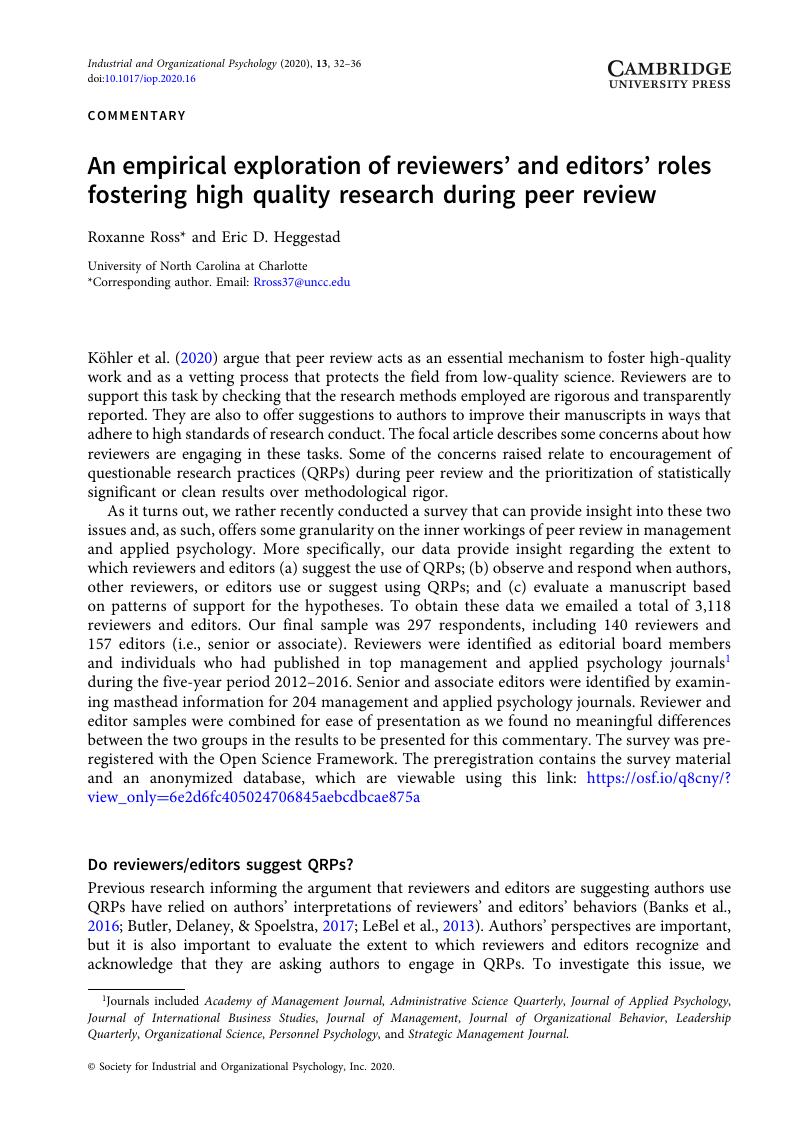Crossref Citations
This article has been cited by the following publications. This list is generated based on data provided by Crossref.
Lakens, Daniël
Mesquida, Cristian
Rasti, Sajedeh
and
Ditroilo, Massimiliano
2024.
The benefits of preregistration and Registered Reports.
Evidence-Based Toxicology,
Vol. 2,
Issue. 1,



